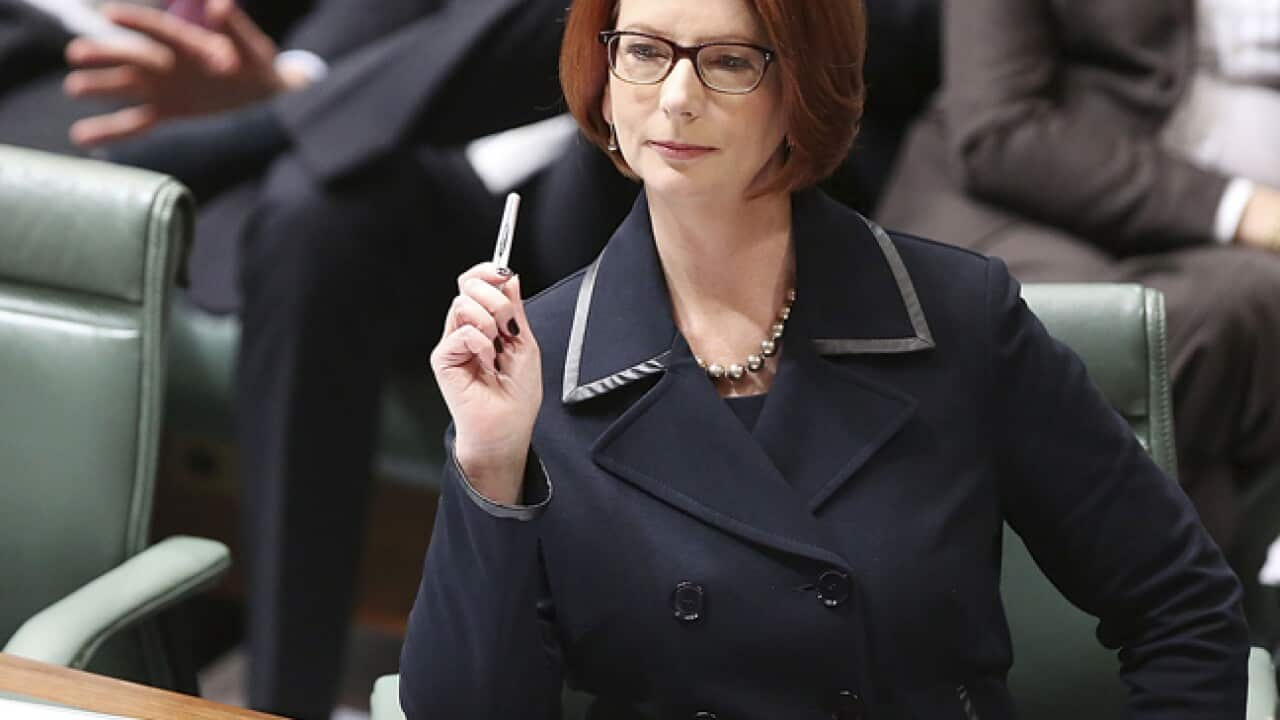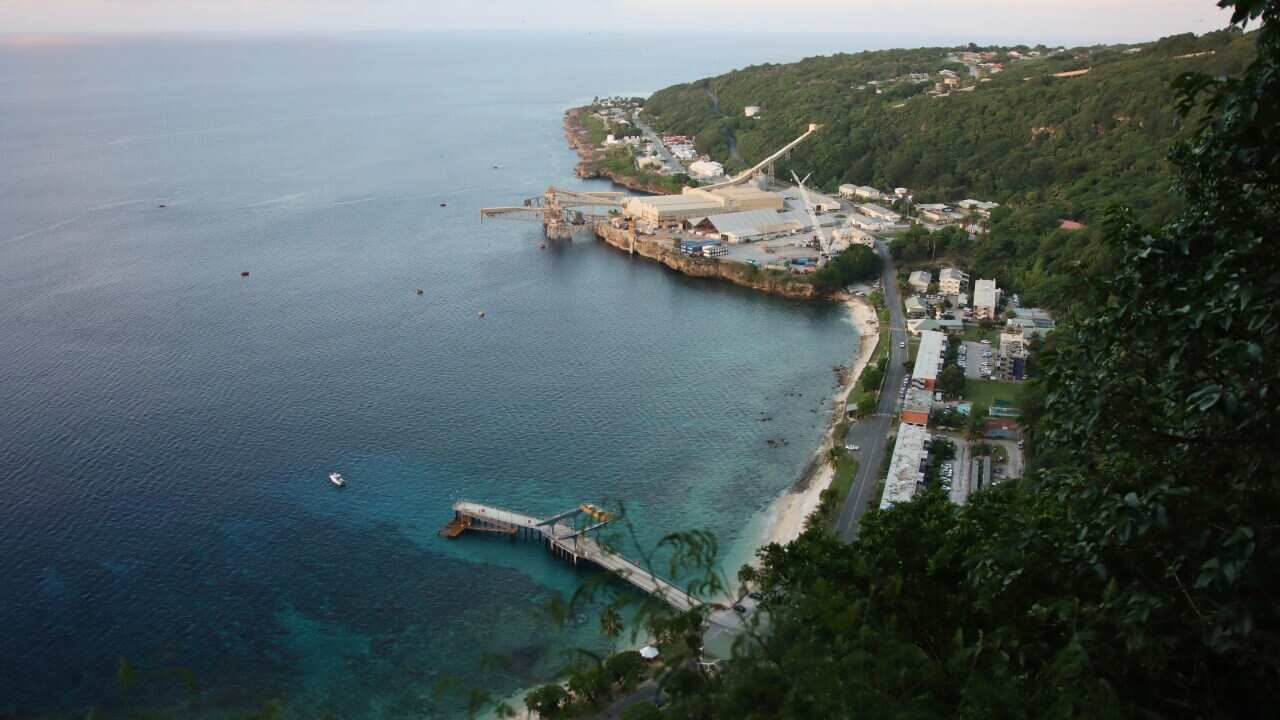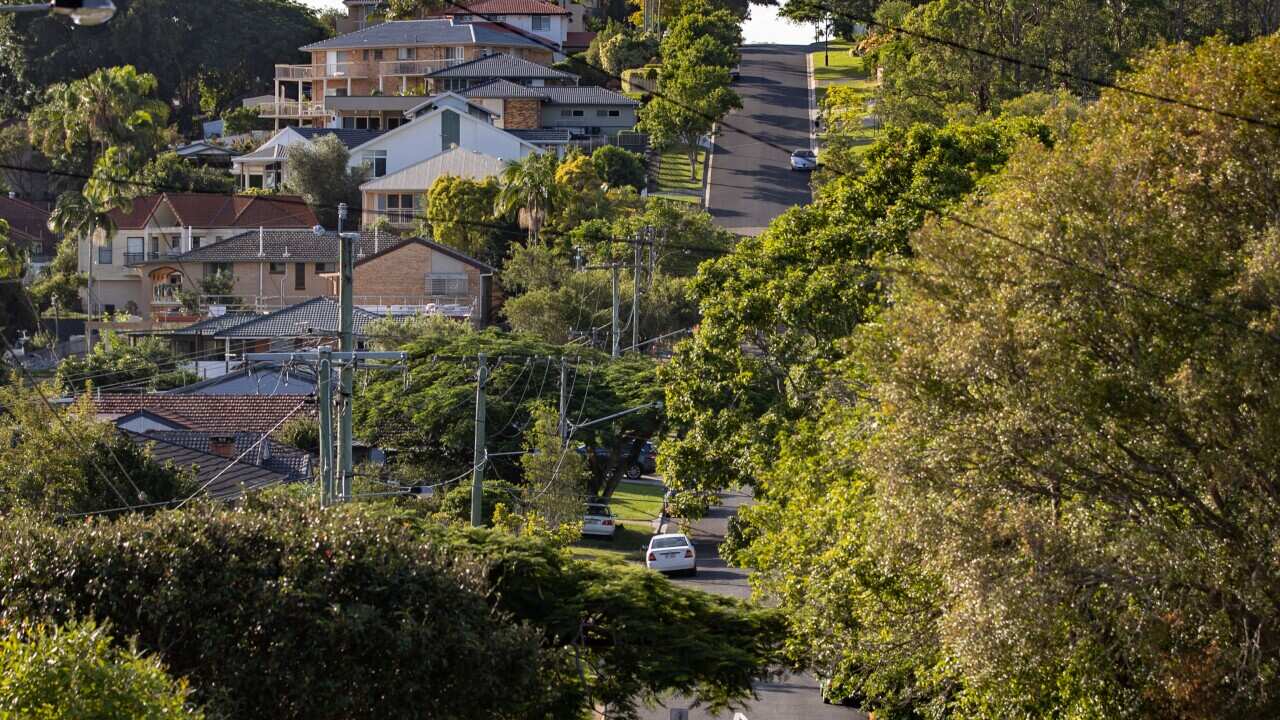In the end, Julia Gillard admitted she worked in a difficult environment.
Ms Gillard says the twin problems of a minority parliament and internal division within Labor made her prime ministership difficult since she toppled Kevin Rudd in a party coup in 2010.
"It has not been an easy environment to work in," she said in her speech after Mr Rudd regained the party leadership in a caucus vote on Wednesday night.
But she also alluded to her position as the first female prime minister and the gender politics she was accused of playing and the sexism she encountered.
"The reaction to being the first female prime minister does not explain everything about my prime ministership, nor does it explain nothing about my prime ministership," she said.
"It explains some things and it is for the nation to think in a sophisticated way about those shades of grey.
"What I am absolutely confident of is it will be easier for the next woman and the woman after that ... and I am proud of that."
Ms Gillard delivered a business-like and composed off-the-cuff speech after losing the caucus poll 57 votes to 45, three years and two days after she benefited from that internal division when she toppled Mr Rudd.
WATCH JULIA GILLARD'S CONCESSION SPEECH:
She only betrayed a hint of emotion as she spoke about her role as female trailblazer and kept her poise when she announced she would retire from politics and end her 15-year tenure as the member for the Victorian seat of Lalor.
Described by her deputy and treasurer Wayne Swan as "one of the toughest warriors that has ever led the Labor Party," Ms Gillard said she was humbled by having the privilege to be prime minister.
"Don't lack the guts, don't lack the fortitude, don't lack the resilience to go out there with our Labor agenda and to win this election," she said. "I know that it can be done."
PATH TO POWER
On June 23, 2010 Julia Gillard visited then Prime Minister Kevin Rudd to say she was challenging for the leadership. After a special caucus meeting the following morning the die was cast and Julia Gillard was named Australia's first female Prime Minister. Kevin Rudd accepted defeat and pledged to support the new PM.
In the August 2010 election Labor support waned. The pressures of a hung parliament and the way in which Ms Gillard came to power caused the Coalition to relentlessly question her trustworthiness.
A series of bad polls prompted leadership speculation that came to a head in February 2012 when Kevin Rudd challenged. Julia Gillard comfortably won the ballot but her leadership was weakened.
She accused Tony Abbott of fuelling the fire in a speech that went viral.
WATCH JULIA GILLARD'S 'MISOGYNY SPEECH'
"The government will not be lectured on sexism and misogyny by this man. Not now, not ever," Ms Gillard said in parliament.
But even her fiery parliamentary performances weren't enough to save her from ongoing leadership criticism.
Worsening polls for Labor created considerable disquiet in caucus which led to a second leadership challenge in which Ms Gillard was the only candidate.
GILLARD'S POLITICAL LEGACY
Australia's first female Prime Minister lasted three years and two days in the job before being replaced by the same man she ousted, her one-time boss Kevin Rudd.
While she will long be remembered as Australia's first female prime minister, Ms Gillard is also credited with reforming work place laws, disability care and education funding as well as less popular policy decisions such as introducing the carbon tax despite an earlier promise not to do so.
In her final address to the nation as Prime Minister last night, Ms Gillard said she was "very pleased" that her government was able to put a price on carbon.
"An historic reform that will serve this nation well, and which required us to have the guts and tenacity to stare down one of the most reckless fear campaigns in this nation's history," she said.
Amid the leadership turmoil yesterday, Ms Gillard's school funding deal passed into law.
Ms Gillard has offered states and territories a deal worth at least an extra $14.5 billion over six years, giving them a June 30 deadline to join.
So far only NSW, South Australia and the ACT have signed up.
"It has been the defining passion of my life that every Australian child gets a great opportunity... for the education that they have, and that project is almost completed," she said yesterday.
In her time as Prime Minister, Julia Gillard oversaw the beginning of a in institutional settings, a move she said "will change the nation, because we will learn how to better protect children for the future."
The former Labor leader also oversaw the introduction of a National Disability Insurance Scheme, now known as DisabilityCare.
Before stepping down officially, Ms Gillard addressed the "so-called gender wars" that have plagued her throughout her leadership.
"Against that background, I do want to say that about all of these issues, the reaction to being the first female prime minister does not explain everything about my prime ministership, nor does it explain nothing about my prime ministership," she said.
"It explains some things, and it is for the nation to think in a sophisticated way about those shades of grey.
"What I am absolutely confident of, is it will be easier for the next woman, and the woman after that, and the woman after that, and I'm proud of that."
Kevin Rudd praised Julia Gillard as a "woman of extraordinary intelligence, of great strength, and great energy," last night following his ballot victory.
He also made note of her efforts to enact workplace reform via the Fair Work Act, which saw a in the mininum wage for workers, as well as her work in the area of education.
Ms Gillard served as Education Minister under the leadership of Kevin Rudd prior to winning the leadership in 2010.
"Were it not for Julia, we would not have a Fair Work Act," Mr Rudd said.
"Were it not for Julia, we would not have a national scheme which ensures that the literacy and numeracy performance of every Australian school is tested regularly, and that interventions occur to lift those students who are doing poorly."
Not all of Julia Gillard's policies went to plan. In 2011, the then Prime Minister attempted to revive a proposed "Malaysia Solution" for asylum seekers arriving in Australia by boat.
The plan, which would have seen Australia send 800 asylum seekers who arrived by boat swapped for 4000 certified refugees living in Malaysia, failed to receive the backing of the Coalition and was never enacted.
However, Australia did see a return to the controversial offshore processing plan for asylum seekers under the Gillard government last year.
Following recommendations of an expert panel on asylum seekers, regional processing centres were set up on Nauru and Papua New Guinea's Manus Island, a move that drew criticism from refugee advocates, in part because of a decision to relocate children offshore, where access to health and education resources are limited.









